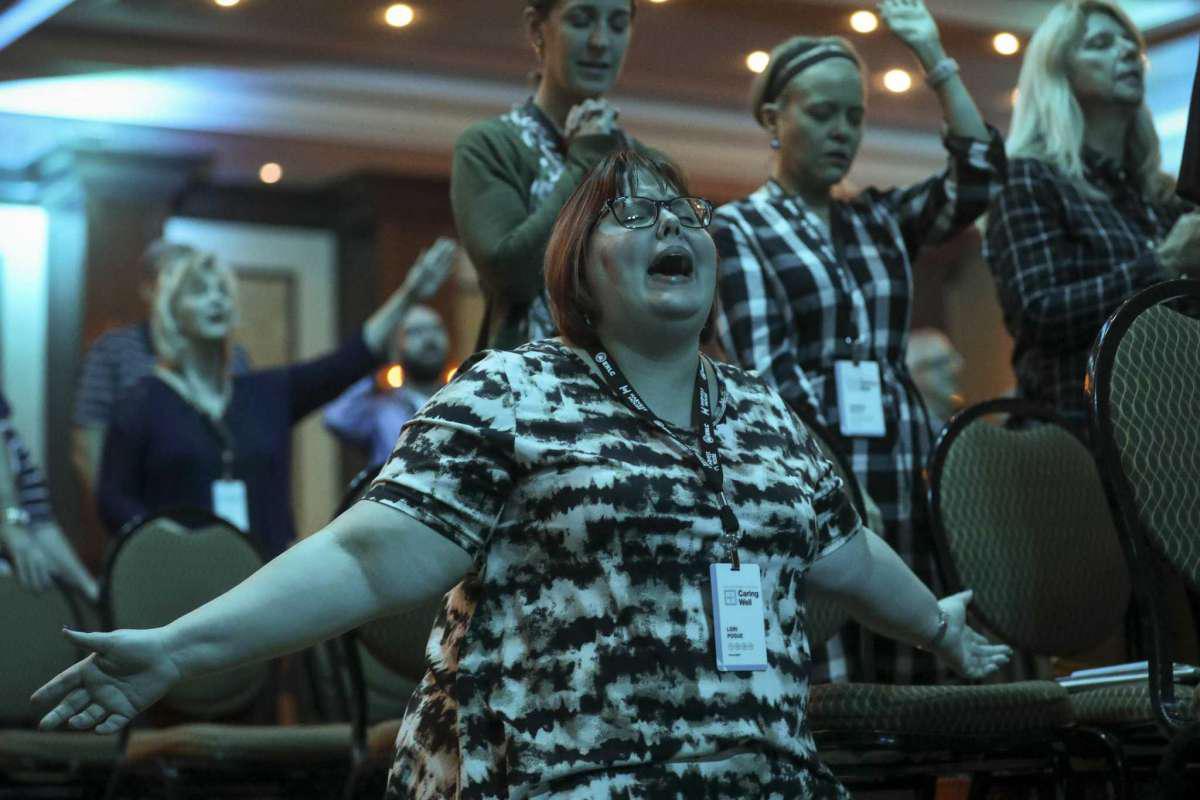|
Abuse survivors urge Southern Baptists to listen, then act
By John Tedesco
For years, victims’ advocates have called for sweeping changes in how the Southern Baptist Convention responds to sexual abuse in its churches. Last week in Grapevine, Baptist leaders said it’s time to listen. But critics are skeptical that their rhetoric will result in meaningful change. More than 1,600 Southern Baptists gathered in Texas for the SBC’s “Caring Well” conference, which aimed to help the largest coalition of Baptist churches in the United States do a better job preventing abuse and assisting victims. The conference was organized in response to a February investigation by the Houston Chronicle and the San Antonio Express-News that revealed hundreds of Southern Baptist church leaders and volunteers had been accused of sexual misconduct in the last two decades. They left behind more than 700 victims, a number that leaders agree is only a sliver of the problem. Speakers at the conference emphasized that sexual abuse in Southern Baptist churches existed long before the newspapers’ investigation — but many churches ignored the warnings. “Southern Baptists won’t have a future unless we are willing to acknowledge our tendency to protect the system over survivors,” said Phillip Bethancourt, the vice president of the convention’s Ethics and Religious Liberty Commission, which organized the conference. “If the system is more important than the survivors, then the system is not worth saving.” It was a wrenching three days for family members and abuse victims, who said they were ostracized by their churches. Yet it also marked the first time some of those ostracized voices were acknowledged and even invited to speak. Megan Lively, a seminary student who had been raped by her then-boyfriend at North Carolina’s Southeastern Baptist Theological Seminary in 2003, told the audience she was viewed as a threat by school leaders when she mustered the courage to come forward. One of those leaders was Paige Patterson, a prominent SBC figure who was fired from Southwestern Baptist Theological Seminary in Fort Worth last year over his handling of sexual assault allegations. Another seminary student said she was stalked and sexually assaulted at Southwestern and filed a federal lawsuit this year alleging that Patterson shamed her. “The day I reported what happened to me, I was seen as a problem to be dealt with rather than a child of God who had been sinned against,” Lively said. “I was thrown away with no help.” Confronting the past Lively and others said that until the SBC confronts deeply rooted imbalances of power — whether between men and women, or pastors and congregants — the abuse will continue. “Those who cannot be questioned, cannot be trusted,” Houston-based Bible teacher Beth Moore said. In recent months, Moore has been at the center of debates over complementarianism, the belief that the Bible has set aside specific, and complementary, roles for men and women. The most hardline believers have increasingly attacked and harassed her for speaking out against the gender imbalance in the SBC. If complementarianism were a woman, Moore said, Southern Baptists should call the police because she is being abused. Boz Tchividjian, a victim advocate who is the grandson of Billy Graham, was just as blunt. “Guys, your system’s broken,” he said. “The system of this denomination is broken. And I’m not going to make many friends by saying that, but it is.” Tchividjian said abuse survivors are the key to healing Southern Baptist churches. There needs to be a “lengthy season of listening” to victims, he said, and he proposed establishing a commission to do that. “It’s not the abused and the wounded within our churches and outside the churches who are in the most need of healing,” he said. “It is the church.” Tchividjian had little patience for past claims by SBC leaders who said they have no authority to tell individual churches how to prevent abuse. “A system that claims to have little authority against abusive churches and pastors, I think would undoubtedly find such authority if an SBC church ordained a woman or gay man,” Tchividjian said. Warning signs While some speakers urged Southern Baptists to reckon with past mistakes, other panelists told attendees how to prevent future harm by recognizing the tactics of pedophiles who attempt to groom children and adults to gain their trust. Among the warning signs: Sexual predators lavish children with gifts and special privileges. They push boundaries and test children to see if they’ll keep secrets. They create seemingly innocent reasons to be alone with a child. “A lot of times, we’re in the room, but we don’t have a clue about what’s going on,” said Carol Hogue, an abuse-prevention advocate. “If we’re perceptive, and we’re really present, and we know what to look for, then we can make it difficult for these people to harm children.” But so much pain and damage could have been avoided if SBC leaders had simply listened to past warnings, said Rachael Denhollander, the first woman to publicly accuse former USA Gymnastics doctor Larry Nassar. Denhollander has been assisting the SBC as it confronts its own sexual abuse crisis. But she was openly critical of past religious leaders who ignored abuse survivors such as Christa Brown and Tiffany Thigpen, who have been calling for change for years as more victims suffered. “Had we listened, these people could have been saved,” Denhollander said. SBC President J.D. Greear said Baptists viewed the warning from Brown and others as “attacks from adversaries instead of warnings from friends.” But Brown hadn’t been invited to speak at the convention, and she remained skeptical anything would change. “For me, the only truth resides in the reality of their deeds,” Brown wrote on Twitter. “Action is what matters. Action is what will protect kids and congregants.”
|
.
Any original material on these pages is copyright © BishopAccountability.org 2004. Reproduce freely with attribution.
